If humans ceased to exist, 3.5 million tons of garbage from Japan to California would remain uncollected. This means that even more plastic waste would be circulating in the streets, forests and oceans.
It wouldn’t be a surprise if we woke up 1,000 years later and there were still plastic McDonald’s cups lying around. But it is not all bad news, since the absence of humans would do the planet and all its characteristics very good.
We thought of 6 surreal hypotheses that would come true if we had to sleep for 1000 years.
Forests Would’ve Grown Back Everywhere On Earth
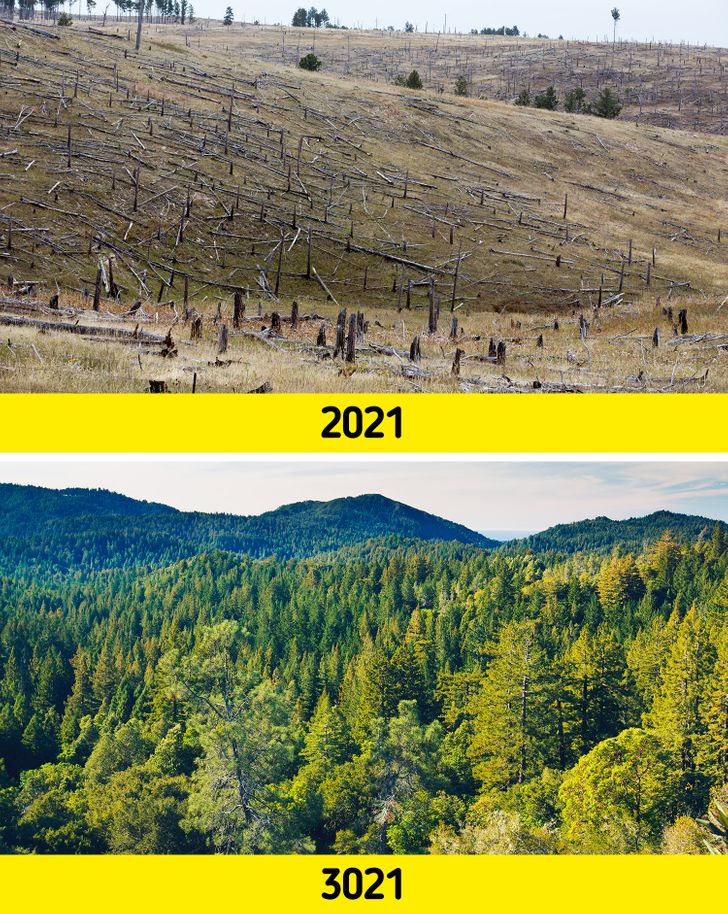
A heavily damaged rainforest takes more than 4,000 years to fully regenerate all of its features. This is because human activity makes it hard for it to do its job faster. So if humans did not exist on the planet, trees and all the elements of nature would grow much faster than expected.
Animals that live in forests would also start to grow in number, as they would have an abundance of food. And animals are a key factor in the regeneration of a deforested forest area.
Also, shade-loving trees would have plenty of time to find their places and grow. This procedure would take more than 160 years.
A Gigantic Number Of Buildings Would Have Collapsed
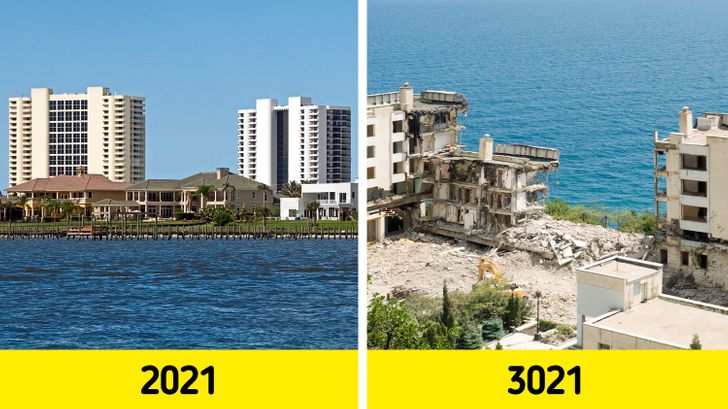
Most tiles used to build houses are built to last 20 to 30 years. After that, leaks and other problems would appear, requiring human intervention to fix them.
By the time your roof starts to leak, it’s only a matter of time before the water rots away your wooden ceiling and walls. Because of this, the wooden structures would be the first to fall.
Glass and metal structures would also start to deteriorate very quickly. So you can forget about all those super tall and extravagant skyscrapers where your work is located. The only buildings that would probably still stand after 1,000 years are those of stone.
The Planet Would Have Gone Pitch Black
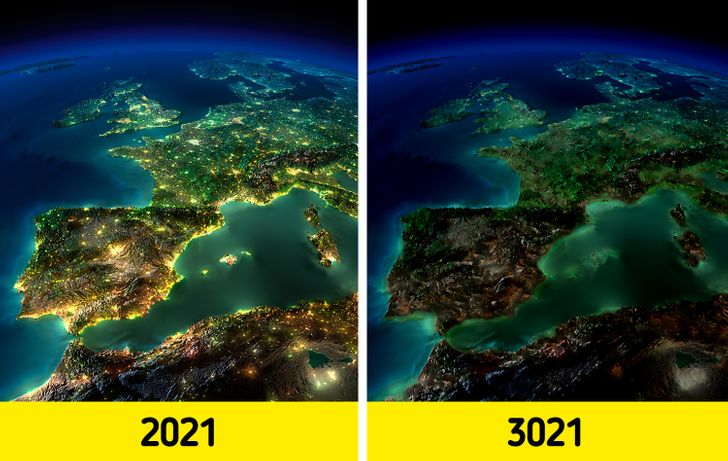
The first day after people went to sleep, most fossil fuel plants closed, causing blackouts around the world. Only Times Square and Las Vegas would have power for a few more days. All the food in our refrigerators would start to be attacked by roaches and rats, which will now take over the world.
In addition, many subway systems that pump water would start to malfunction, flooding the tunnels in about 36 hours. In Alaska, oil storage tanks would fill to the brim and then explode. Oil would start to spill and gallons of oil would end up in the ocean.
Most Household Animals Would Be Extinct

Animals such as small dogs and sheep are the most vulnerable and in great danger. Even if they stay inside a building, they will eventually run out of food and be forced to go out and find it.
Larger dogs, such as German Shepherds, Sheepdogs, and wild breeds, will be able to adapt to nature and protect themselves.
Cats could probably adjust to their new way of life too. However, they will have to toughen up a bit to survive. Dogs that have escaped from the dogfighting tracks and arenas will have no trouble surviving.
Their competitive and wild nature will help them dominate the weaker breeds.
Many Of The World’s Monuments Would Be History
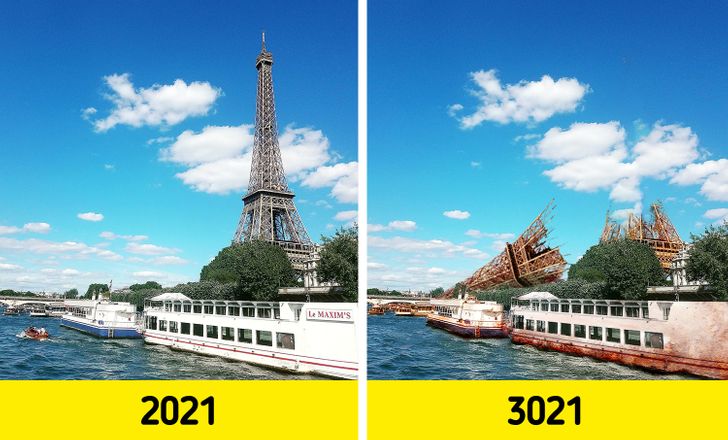
Corrosion is one of the greatest enemies of all the materials that were used to build all of our beautiful monuments. Only gold is immune to corrosion over time.
Today, air pollutants are the number one cause of corrosion and the reason people need to maintain and repair their homes today. But even if human activity suddenly stopped, this problem would not go away.
This is because metals are damaged simply by the presence of oxygen. This causes the rust to grow, something that will sooner or later result in its destruction. And without humans around to take care of the problem, the destruction would be even greater.
Many Cities Would Be Underwater
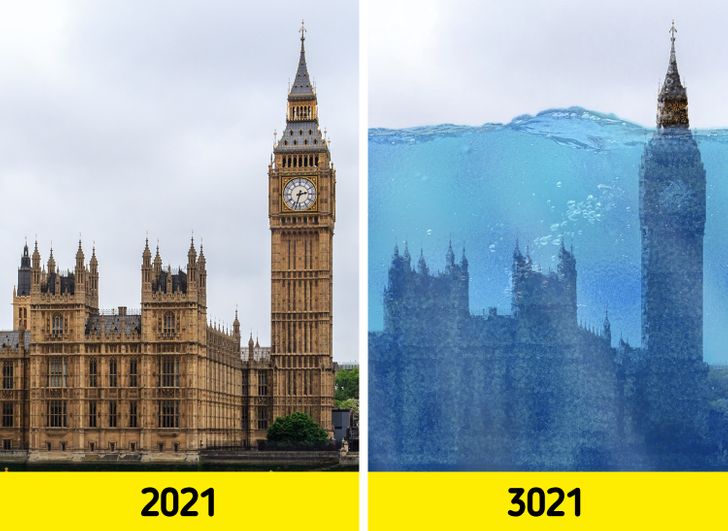
The reason cities like Amsterdam still exist is because of the drainage systems, dams, and bridges. They all keep the ocean out of our cities and prevent catastrophes like floods and tsunamis.
But if humans weren’t present to maintain these systems, the force of the water would destroy them. Large amounts of water would enter our cities and what used to be our homes.
That said, cities like New York, Miami, and New Orleans are likely to go underwater. According to today’s data, these cities would experience extreme increases in water levels by 2070. But without humans around, something like this could take much less time to happen.
Would you participate in an experiment that required you to sleep in an underground shelter for 1,000 years?
Preview photo credit Pixabay.com


